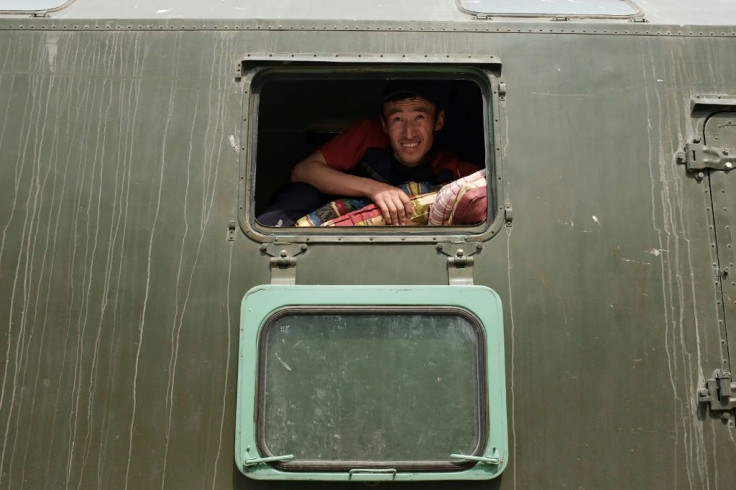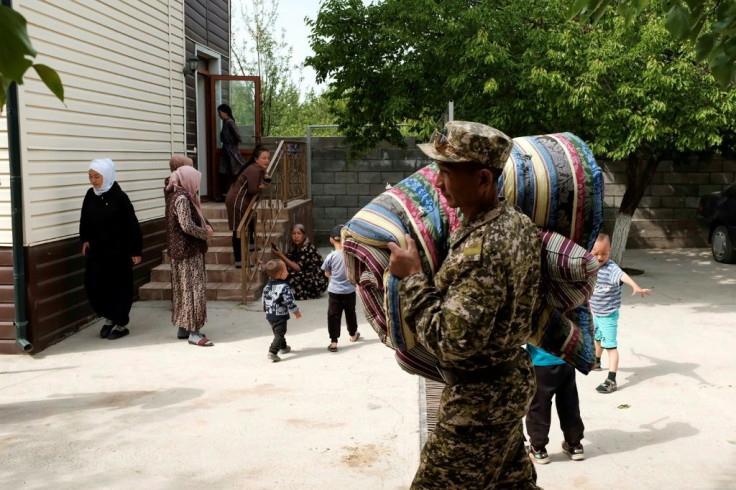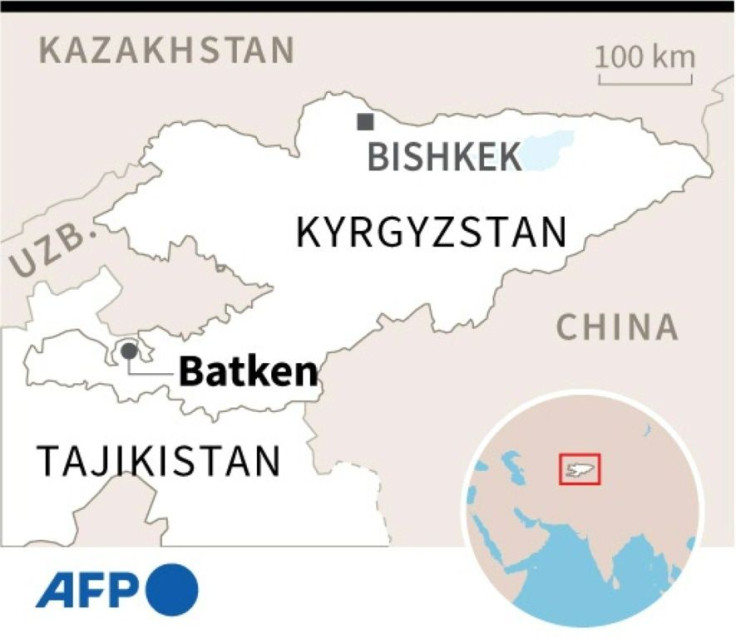Kyrgyzstan Says Shooting Stops After Deadly Clashes With Tajiks
Kyrgyzstan said on Friday that shooting at its disputed border with Tajikistan had stopped, boosting peacemaking efforts of top officials after at least 31 were killed and scores injured in the worst frontier violence between the two Central Asian nations in years.
Clashes between communities over land and water along Kyrgyzstan and Tajikistan's long-contested border are regular occurrences, with border guards often getting involved.
But shooting that broke out Thursday between the two militaries was the heaviest fighting in years and raised fears that it might escalate into a wider conflict.
The Kyrgyz health ministry said Kyrgyzstan had suffered at least 154 casualties, including 31 deaths in the latest bout of violence.

But hopes that the conflict was cooling were raised on Friday as high profile talks between officials from the two countries took place and Kyrgyz authorities said shooting along the frontier had stopped completely.
A representative of the Kyrgyz national security committee told AFP that shooting had "ceased from around 6 pm (1200 GMT)" on Friday and the border region was now "fairly quiet"
Military units from the two countries began exchanging fire on Thursday, but later agreed a ceasefire following talks at several different levels of government which appeared to calm the fighting.
Authorities in Kyrgyzstan's southwestern Batken region had said earlier on Friday that shooting along the shared border was continuing "periodically" despite the ceasefire.

President Sadyr Japarov of Kyrgyzstan and Tajik counterpart Emomali Rakhmon spoke by telephone on Friday, Japarov's press service said, and agreed to meet "in the second half of May".
Tajikistan's state information agency also published news of the call, confirming that Rakhmon had invited Japarov to visit Tajikistan and that an intergovernmental commission on delimitation and demarcation would meet in the Kyrgyz city of Batken on May 1.
Kyrgyzstan's national security chief Kamchibek Tashiyev also told journalists that he had met with Tajik counterpart Saimumin Yatimov on "neutral territory" at the border on Friday.
Over 10,000 Kyrgyz citizens were evacuated from two districts bordering Tajikistan where the fighting had been most intense, according to Kyrgyz authorities.

Many were returning to their villages on Friday, Batken's regional administration said.
More than a third of the two impoverished, mountainous countries' border is disputed, with the area surrounding the Tajik enclave of Vorukh, where Thursday's conflict erupted, a regular flashpoint over territorial claims and access to water.
On Friday, neighbouring Uzbekistan's leader Shavkat Mirziyoyev's office said he had held separate talks by telephone with Tajik leader Rakhmon and Kyrgyz president Japarov aimed at easing the conflict.
Kyrgyzstan on Friday published a detailed list of properties in its Batken region that had been damaged, highlighting the scale of the clashes along the border.
Among the properties burned down during the violence were a border post, more than 20 homes, a school, eight shops and a casino, according to the Kyrgyz emergencies ministry.
Tajikistan did not keep a count of its casualties after the national security committee said near the beginning of the conflict on Thursday that two citizens had been admitted to hospital, with one in a serious condition.
On Friday its information service Khovar reported that national security committee chief Yatimov had visited injured citizens including the mayor of the provincial Tajik town of Isfara in hospital.
Tajikistan's security committee had on Thursday accused Kyrgyz soldiers of opening fire on Tajik troops at the Golovnaya water distribution point, located on the Isfara River.
It said Kyrgyz and Tajik civilians had become embroiled in a dispute over the vital piece of river infrastructure on Wednesday.
Border disagreements between the three countries that share the fertile Fergana Valley -- Kyrgyzstan, Tajikistan and Uzbekistan -- stem from demarcations made during the Soviet era.
The knotting, twisting frontiers left several communities with restricted access to their home countries.
Kremlin spokesman Dmitry Peskov said Friday that Russian President Vladimir Putin was "deeply concerned" by the clashes in two countries where Moscow maintains military bases and "always ready" to play a "mediating role".
© Copyright AFP 2024. All rights reserved.





















